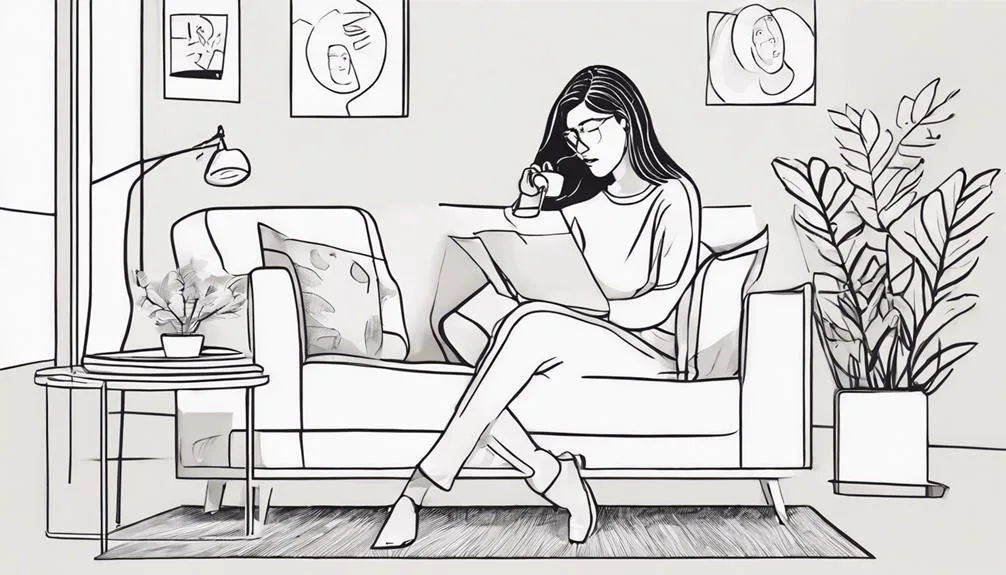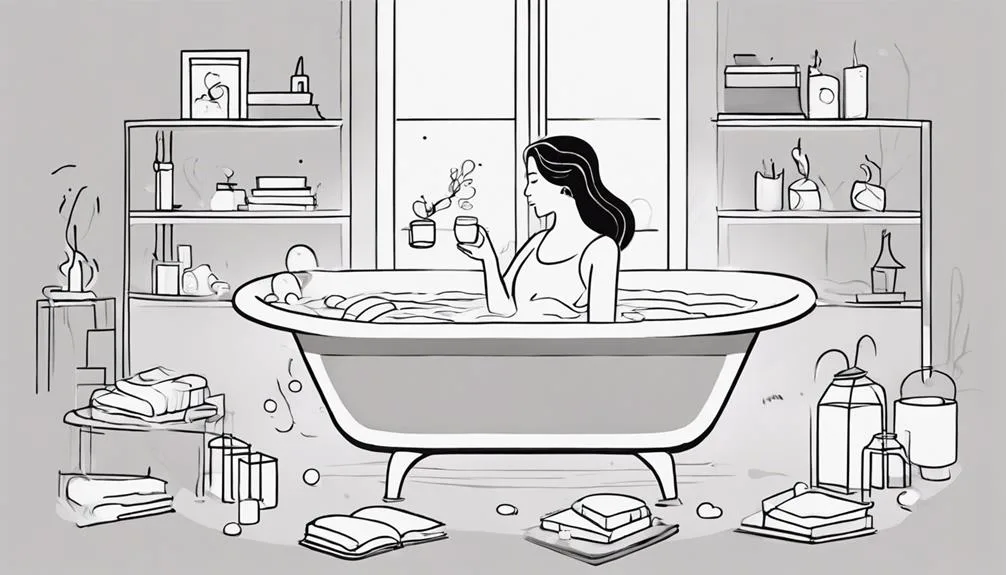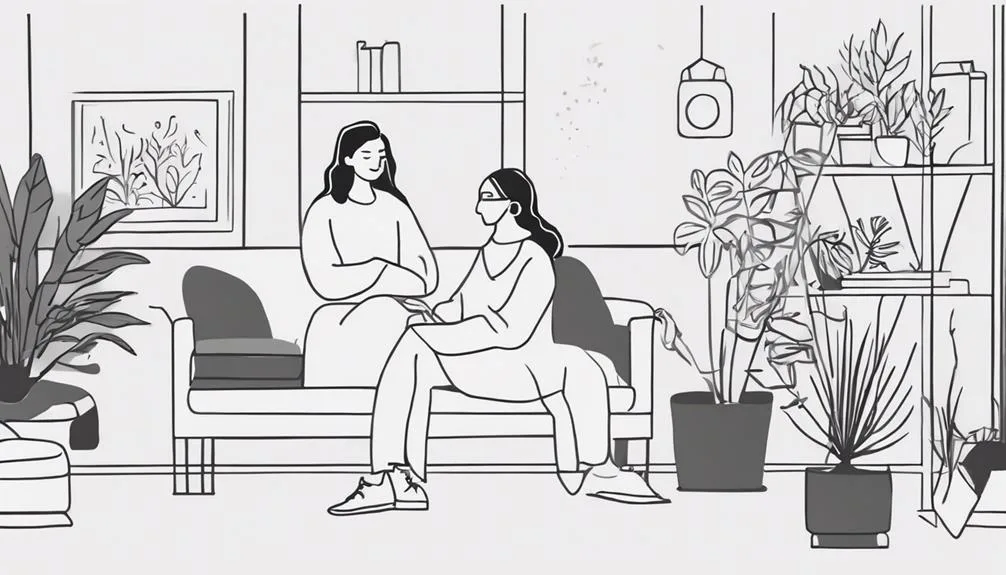Discover 15 practical relationship tips for women to enhance their connections.
Learn how open communication and self-care can strengthen your partnerships.
By following these simple principles, you can see your relationships flourish in new and unexpected ways.
Communication Is Key

Effective communication lies at the heart of building strong and lasting relationships. To truly connect with your partner, it’s crucial to practice active listening and engage empathetically. Active listening involves giving your full attention to your partner, focusing on their words, and understanding the emotions behind them.
Instead of formulating your response while they speak, allow yourself to absorb what they’re saying without judgment or interruption. This shows that you value their thoughts and feelings.
Empathetic engagement goes hand in hand with active listening. It means not only understanding your partner’s perspective but also showing compassion and support. Put yourself in their shoes, acknowledge their emotions, and respond with care and kindness.
Set Boundaries Early
Setting boundaries early in a relationship is important for establishing mutual respect and understanding.
Clearly communicate your needs and expectations to make sure they’re met.
Consistently enforcing these boundaries will help maintain a healthy and balanced dynamic between you and your partner.
Clear Communication Is Key
Open and honest communication from the start is crucial in any relationship, ensuring that both partners understand each other’s boundaries and expectations. When it comes to setting the foundation for effective communication in your relationship, remember these key points:
- Set Clear Expectations: Clearly communicate your needs and what you expect from the relationship.
- Listen Actively: Pay attention to your partner’s words and feelings to understand them better.
- Be Honest: Speak truthfully and express yourself openly to foster trust and understanding.
- Respect Boundaries: Acknowledge and respect each other’s boundaries to maintain a healthy and balanced relationship dynamic.
Respect Your Own Needs
To confirm a healthy and fulfilling relationship, it is important to prioritize your own needs by setting boundaries early on. Prioritizing self-care and maintaining independence in a relationship is essential for your overall well-being. When setting boundaries, clearly communicate your needs and expectations to your partner. Respect your own limits and make sure they are understood and respected by your partner as well. By establishing boundaries from the beginning, you are showing self-respect and teaching your partner how to treat you. Remember, a strong relationship is built on mutual respect and understanding. Take care of yourself first, so you can bring your best self into the relationship.
| Benefits of Prioritizing Your Needs | Ways to Maintain Independence |
|---|---|
| Helps you feel valued and respected | Pursue your own hobbies and interests |
| Improves overall relationship satisfaction | Set aside alone time for self-reflection |
| Enhances emotional well-being | Communicate openly about your feelings |
Enforce Boundaries Consistently
When maintaining a healthy relationship, consistently enforcing boundaries is key to establishing mutual respect and understanding between you and your partner. Setting boundaries early on can help create a strong foundation for your relationship.
Here are some tips to help you enforce boundaries effectively:
- Self Care Balance: Prioritize self-care and guarantee that your needs are being met within the relationship.
- Communicate Openly: Clearly communicate your boundaries to your partner and encourage them to do the same.
- Stay Firm: Be firm in upholding your boundaries and don’t compromise on what’s important to you.
- Reassess Regularly: Check in with yourself and your partner periodically to make sure your boundaries are still serving both of you well.
Show Appreciation Regularly
Regularly expressing gratitude and acknowledgment to your partner can strengthen the bond and foster a deeper connection in your relationship. Showing appreciation is a crucial aspect of nurturing a healthy relationship. It not only makes your partner feel valued but also contributes to overall relationship satisfaction. Understanding your partner’s love language can help you tailor your expressions of gratitude to resonate more deeply with them.
| Benefits of Showing Appreciation | How to Show Appreciation |
|---|---|
| Enhances relationship satisfaction | Verbal affirmations |
| Builds a stronger emotional connection | Acts of kindness |
| Boosts partner’s self-esteem | Quality time together |
Practice Active Listening

When it comes to improving your relationships, practicing active listening is key.
By engaging with empathy, you show your partner that you truly care about their feelings.
Validate their emotions and focus on understanding their perspective to strengthen your bond.
Engage With Empathy
To truly connect with your partner, listening attentively and empathetically is key. When you engage with empathy, you show understanding and build a strong emotional connection that fosters mutual support in your relationship.
Here are some practical tips to help you better engage with empathy:
- Be Fully Present: Put away distractions and focus on what your partner is saying.
- Validate Emotions: Acknowledge your partner’s feelings without judgment.
- Ask Open-Ended Questions: Encourage your partner to share more about their thoughts and emotions.
- Reflect Back: Summarize what your partner has said to show you understand and care.
Validate Partner’s Feelings
In nurturing a healthy relationship, demonstrating active listening by validating your partner’s feelings is essential for fostering understanding and connection. When you validate emotions, you show your partner that their feelings are important and respected. Offering emotional support through active listening helps create a safe space for open communication and strengthens the bond between you. Remember, it’s not just about hearing words but understanding the emotions behind them. Take the time to listen attentively, acknowledge their feelings, and respond with empathy. By validating your partner’s feelings, you show that you care deeply about their emotional well-being, building trust and intimacy in your relationship.
| Benefits of Validating Partner’s Feelings | Emotional Impact | Outcome |
|---|---|---|
| Enhances understanding and connection | Validation brings comfort and relief | Strengthened emotional bond |
| Creates a safe space for open communication | Feeling heard and understood | Improved trust and intimacy |
| Demonstrates respect for your partner’s emotions | Validation promotes emotional security | Encourages honest expression |
Focus on Understanding
Showing genuine interest in understanding your partner’s perspective through active listening is key to building a strong emotional connection in your relationship. By practicing active listening, you can deepen your bond and foster better communication. Here are some tips to help you focus on understanding:
- Empathy Practice: Put yourself in your partner’s shoes to truly grasp their feelings and experiences.
- Respect Boundaries: Be mindful of your partner’s boundaries and avoid pushing them to share more than they’re comfortable with.
- Ask Open-Ended Questions: Encourage your partner to elaborate on their thoughts and feelings by asking open-ended questions.
- Reflect Back: Summarize what your partner has said to show that you’re actively listening and understanding their perspective.
Prioritize Self-Care

Taking care of yourself is essential for maintaining a healthy and fulfilling relationship. Prioritizing self-care isn’t vital; it’s an important aspect of nurturing a strong connection with your partner. To love another person fully, you must first love yourself. Self-love is the foundation upon which all other relationships are built. By investing in self-awareness and understanding your own needs, you’re better equipped to communicate effectively and set boundaries within your relationship.
Self-care involves setting aside time for activities that bring you joy and relaxation. It could be as simple as reading a book, going for a walk, or practicing mindfulness. When you prioritize self-care, you replenish your emotional reserves, allowing you to show up as your best self in your relationship. Remember, you can’t pour from an empty cup. By taking care of yourself, you not only benefit personally but also enhance the quality of your relationship.
Learn to Compromise
To maintain a harmonious relationship, understanding how to work towards compromise is key for fostering understanding and cooperation between you and your partner. Compromise gracefully and negotiate effectively to navigate through differences and strengthen your bond. Here are some practical tips to help you on this journey:
- Communicate openly: Express your thoughts and feelings honestly while also being receptive to your partner’s perspective. Effective communication sets the foundation for successful compromise.
- Identify common ground: Focus on shared goals and values to find solutions that satisfy both parties. Recognizing mutual interests can lead to more meaningful compromises.
- Be willing to give and take: Understand that compromise is a two-way street. Show flexibility and openness to adjust your expectations for the greater good of the relationship.
- Seek win-win solutions: Work towards outcomes where both you and your partner feel heard and respected. Finding compromises that benefit both sides promotes harmony and understanding in your relationship.
Trust Your Instincts

Trust your instincts, they’re your inner compass guiding you through connections.
If something feels off, listen to that nagging feeling; it might be trying to protect you.
Intuition Is Key
Listening to your inner voice can often guide you towards making the right decisions in your connections. Trust your gut feelings and embrace the power of your intuition. Here’s how to make the most of this invaluable tool:
- Intuition is Key: Recognize that your intuition is a powerful ally in managing relationships.
- Develop Self Awareness: Take time to understand your feelings and emotions to better interpret your intuition.
- Listen to Your Instincts: Pay attention to those initial feelings or thoughts that arise in different situations.
- Trust Your Gut: Have confidence in your instincts and use them to inform your choices and actions in relationships.
Listen to Yourself
When tuning into your inner voice, be attentive to those subtle nudges and feelings that often serve as valuable guides in your relationships. Self-reflection and self-care are vital elements in fostering a strong connection with your intuition. Trusting your instincts can lead you to make decisions that align with your deepest desires and values. Remember, your intuition is a powerful tool that can help you navigate complex relationship dynamics. Take the time to listen to yourself, honor your feelings, and trust the signals your body and mind are sending you. By prioritizing self-awareness and self-trust, you can cultivate a more authentic and fulfilling relationship with yourself and others.
| Importance of Self-Reflection | Benefits of Self-Care | Ways to Trust Your Intuition |
|---|---|---|
| Helps you understand your emotions better | Enhances overall well-being | Meditate and quiet your mind |
| Promotes personal growth | Reduces stress levels | Journal your thoughts and feelings |
| Encourages mindfulness in relationships | Boosts confidence | Pay attention to your body’s reactions |
| Facilitates decision-making | Improves mental health | Practice deep breathing exercises |
| Strengthens self-awareness | Fosters self-love | Seek feedback from trusted individuals |
Maintain Independence
Wondering how you can maintain your independence while nurturing a healthy relationship? Prioritizing your personal growth and well-being while being part of a couple is vital. Here are some tips to help you strike a balance and maintain your independence:
- Set Healthy Boundaries: Clearly communicate your needs, desires, and limits to your partner. Establishing boundaries will help you maintain your sense of self within the relationship.
- Pursue Your Interests: Continue to engage in activities and hobbies that bring you joy and fulfillment. Maintaining your individual interests will help you stay connected to yourself.
- Make Time for Yourself: Schedule regular alone time to reflect, relax, and recharge. Taking care of your own needs is necessary for your overall well-being.
- Seek Support: Surround yourself with friends, family, or a therapist who can provide emotional support and encouragement. Having a strong support system outside of your relationship can help you maintain your independence.
Support Each Other’s Goals

To foster a strong and supportive relationship, it’s essential to encourage and assist each other in achieving your individual goals. Understanding the goal support dynamics within your relationship can have a major impact on its strength and longevity. By actively participating in each other’s aspirations, you not only show support but also strengthen the bond between you. Encouraging ambitions creates a sense of teamwork and shared purpose, leading to a more fulfilling and connected relationship.
Communication plays an important role in supporting each other’s goals. Take the time to discuss your aspirations openly and listen attentively to your partner’s dreams. Providing emotional support, offering help when needed, and celebrating achievements together are crucial components of the goal support dynamics. When you both feel supported and encouraged, it creates a positive environment where you can grow individually and as a couple. Remember, your partner’s goals are just as important as your own, and by nurturing each other’s ambitions, you pave the way for a successful and harmonious relationship.
Resolve Conflicts Calmly
Supporting each other’s goals can sometimes lead to misunderstandings or differences in opinions; however, approaching and resolving conflicts calmly is crucial in maintaining a healthy and harmonious relationship. When conflicts arise, remember that communication is key. Here are some tips to help you navigate through disagreements with your partner:
- Listen actively: Give your partner your full attention and truly hear what they’re saying without interrupting.
- Express your feelings: Use ‘I feel’ statements to communicate your emotions without blaming your partner.
- Practice empathy: Try to understand your partner’s perspective and show compassion towards their feelings.
- Take a timeout if needed: If the discussion becomes too heated, agree to take a break and revisit the topic when both of you’re calmer.
Keep the Romance Alive

Are you looking to keep the spark alive in your relationship? Small surprises or thoughtful gestures can go a long way in keeping the romance alive.
Spending quality time together, whether it’s a cozy night in or a fun outing, can help strengthen your bond and keep things exciting.
Surprise Romantic Gestures
Keeping the romance alive in your relationship can be effortlessly achieved by incorporating unexpected romantic gestures that show your partner how much you care. Here are some ideas to help you surprise your partner and keep the spark alive:
- Plan creative date ideas: Surprise your partner with a picnic under the stars, a spontaneous road trip, or a cooking class together.
- Gift thoughtful presents: Show your love with small but meaningful gifts that align with your partner’s interests or needs.
- Leave sweet notes or messages: A simple ‘I love you’ text or a handwritten letter can make your partner’s day.
- Plan spontaneous gestures: Surprise your partner with breakfast in bed, a warm bath after a long day, or a spontaneous dance in the living room.
These simple gestures can go a long way in keeping the romance alive in your relationship.
Quality Time Together
To keep the romance alive, prioritize spending quality time together to strengthen your bond and create lasting memories. Consider planning date nights that cater to both your interests, such as cooking a meal together, going for a scenic hike, or enjoying a movie marathon.
These shared experiences help deepen your connection and create new memories. Engage in bonding activities like taking a dance class, volunteering together, or simply going for a leisurely walk in the park.
Quality time tips like actively listening to each other, putting away distractions, and showing appreciation for your partner’s efforts can go a long way in relationship building. Remember, it’s the moments you spend together that truly nurture your love and keep the spark alive.
Be Honest and Transparent
Being honest and transparent in your relationships is key to building trust and deepening the connection you share with your partner. When you practice vulnerability and open up to your partner, you show them that you trust them with your true self, which can strengthen your bond. Here are some tips to help you incorporate honesty and transparency into your relationship:
- Communicate Openly: Share your thoughts, feelings, and concerns openly with your partner. Effective communication is the foundation of a healthy relationship.
- Be Authentic: Be true to yourself and your values. Authenticity breeds trust and helps foster a genuine connection with your partner.
- Own Your Mistakes: Take responsibility for your actions and admit when you’re wrong. Being accountable builds trust and shows your partner that you value honesty.
- Set Boundaries: Clearly communicate your boundaries and respect your partner’s boundaries as well. Mutual respect is critical for a trusting and transparent relationship.
Respect Each Other’s Space

Respecting each other’s space is about acknowledging and honoring the individuality and autonomy that both you and your partner bring to the relationship. Personal boundaries play a critical role in maintaining a healthy dynamic. Recognizing that each person has their own needs, desires, and limits. Understanding and respecting these boundaries demonstrate your care and consideration for your partner’s emotional and physical space.
Space respect isn’t just about physical distance but also about giving each other the freedom to pursue individual interests, hobbies, and friendships. Encouraging independence within the relationship can strengthen the bond between partners. By allowing room for personal growth and self-expression, you create a more fulfilling and balanced partnership.
Remember that communication is key when it comes to respecting each other’s space. Be open and honest about your needs and listen actively to your partner’s concerns. Finding a healthy balance between togetherness and independence will nurture a strong and harmonious relationship built on mutual respect and understanding.
Plan Quality Time Together
Make sure to prioritize planning quality time together to strengthen your bond and create lasting memories. Quality time is essential for nurturing a healthy and thriving relationship. Here are some practical tips to help you make the most of your time together:
- Date Nights: Schedule regular date nights to keep the spark alive in your relationship. Whether it’s a romantic dinner at a fancy restaurant or a cozy movie night at home, setting aside time for just the two of you can strengthen your connection.
- Adventure Weekends: Plan adventurous getaways or day trips to break away from routine and create exciting memories together. Whether it’s hiking in nature, exploring a new city, or trying out a new activity, stepping out of your comfort zone can bring you closer together.
- Quality Conversations: Make time for meaningful conversations where you can share your thoughts, feelings, and dreams with each other. Open communication is key to understanding each other better and building a deeper connection.
- Shared Hobbies: Discover and engage in activities that you both enjoy. Whether it’s cooking together, taking dance classes, or volunteering, sharing hobbies can strengthen your bond and create new experiences to cherish together.
Seek Professional Help if Needed

If you find that your relationship is facing challenges that seem overwhelming, consider reaching out to a professional for guidance and support. Seeking therapy or relationship counseling can provide you with the tools and strategies needed to navigate through difficult times. It’s important to recognize that seeking help is a sign of strength, not weakness.
Therapists and relationship counselors are trained to help couples communicate effectively, resolve conflicts, and strengthen their bond. They can offer unbiased perspectives and create a safe space for both partners to express their feelings openly. Remember, asking for help doesn’t mean your relationship is failing; it means you’re committed to making it work and thrive.
Professional help can also assist in uncovering underlying issues that may be contributing to the challenges you’re facing. By addressing these issues with the guidance of a trained professional, you can work towards building a healthier and more fulfilling relationship. Don’t hesitate to seek support when needed; it can make a significant difference in your relationship’s well-being.
Conclusion
By prioritizing effort, communication, and self-care, you lay a solid groundwork for a healthy relationship.
Setting boundaries, showing appreciation, and seeking help when needed are key elements for fostering understanding and growth.
Remember to respect each other’s space and stay committed to nurturing your connection.
With these principles at heart, your relationship can flourish with grace and resilience.

